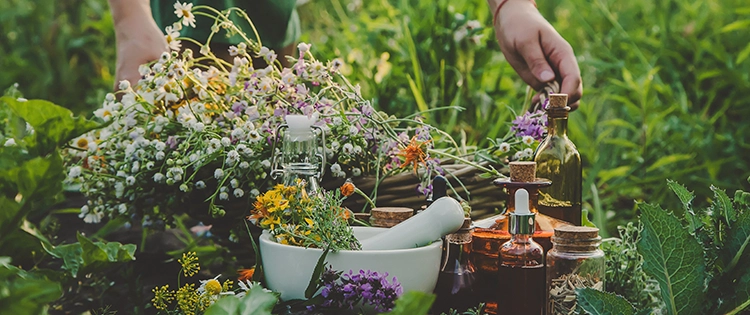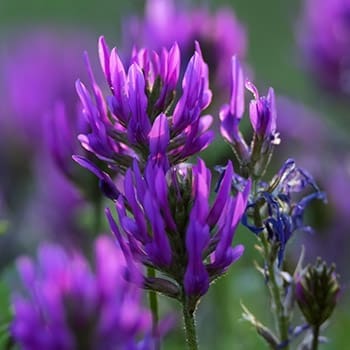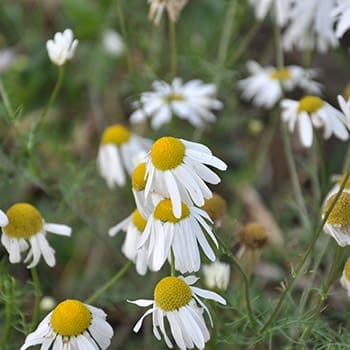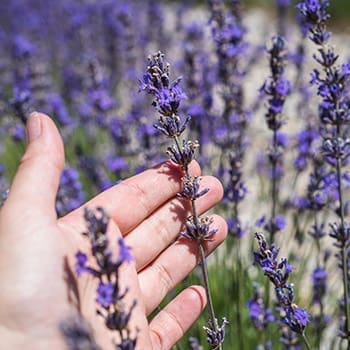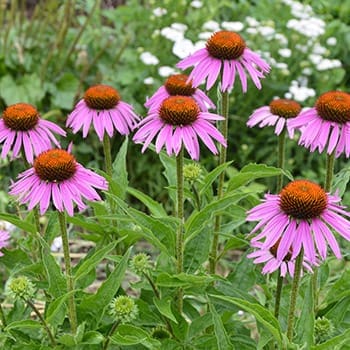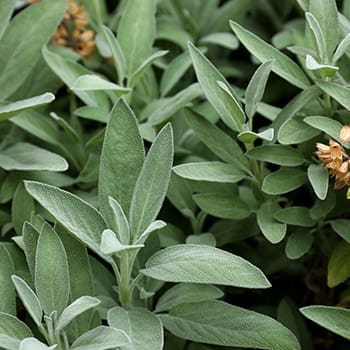As spring approaches and infuses the earth with new life, now is the time to create your very own healing garden with a variety of medicinal herbs. Nature has blessed us with an unlimited supply of botanical treasures, each containing its own unique restorative properties that have been used for centuries.
If you have been curious about herbal medicine, here are 15 essential medicinal plants that every homesteader should grow this spring.
Calendula
Calendula is a powerful herb that homesteaders can use to treat wounds and skin irritations. It is a beneficial companion plant for vegetables such as pumpkins, tomatoes, Brussels sprouts, and carrots.
It can be planted by lightly preparing the soil, adding fertilizer, sowing the seeds in lines, and watering them gently.
Burdock
Historically used for blood cleansing and skin issues like psoriasis and acne, burdock is known to treat chronic ailments like diabetes and cancer, although there is not much evidence to back this up. Nevertheless, homesteaders can use this potent herb for digestive disorders, joint pain, and inflammation.
To plant burdock, sow seeds directly into your garden, spaced 15cm apart and 15cm deep, in rows 60cm apart, in sunny to partially shaded areas with moist soil. Make sure the soil remains at 68-77°F if you want the seeds to germinate within 7-14 days.
Astragalus
For homesteaders looking to strengthen their immune systems, this herb is for you. Astralagus is also known for treating ailments like diabetes, high blood pressure, and respiratory infections. It is also excellent for wound care and skin conditions.
It thrives in dry soil and is best planted indoors during late winter. You can then move the plant outside after the last frost, exposing it to full sunlight or partial shade.
Rosemary
Rosemary treats anxiety, pain, and insomnia, and improves memory. It also repels pests, making it a beneficial companion plant. To plant rosemary, soak seeds overnight, and start growing them indoors between mid-February and April.
Transplant the germinated seeds into well-drained soil and water the plant thoroughly.
Mugwort
For homesteaders who suffer from fatigue, pain, digestive issues, anxiety, and irregular periods, this is a herb you should have in your medicine cabinet. It’s a good companion plant for vegetables such as carrots, beans, tomatoes, and cabbage. Sow seeds indoors in trays, and make sure they get plenty of light.
Transplant outdoors once the plant germinates and the last frost has passed.
Chamomile
Chamomile is used for conditions like hemorrhoids, insomnia, and inflammation. It’s a great companion plant for fruit trees, brassicas, and mint.
Plant chamomile seeds directly into your garden, make sure the plant is watered often but doesn’t get waterlogged. Get your high-quality Chamomile seeds from here.
Oregano
Homesteaders can use oregano to treat ailments like colds, indigestion, and inflammation. It’s a beneficial companion plant for strawberries, turnips, and cauliflower. Start the planting process indoors in trays and then transplant to the garden in warm, well-drained soil. Water the plant regularly during the first summer.
Ashwagandha
For homesteaders wanting to improve their memory and nervous system function, be sure to add Ashwagandha to your herbal garden. It’s a good companion plant for okra, petunias, marjoram, geraniums, and tomatoes. Plant Ashwagandha seeds in direct sunlight with well-drained sandy soil. Water when the top layer of soil feels dry.
Lavender
This awesome-smelling herb boosts hair growth, provides pain relief, and treats skin conditions. Lavender is an ideal companion plant for beans, tomatoes, leeks, and carrots.
Plant lavender seeds in moist compost, expose them to plenty of light, and transplant them into your garden after the last frost has passed. Get your high-quality Lavender seeds from here.
Lemon Balm
For homesteaders wanting to alleviate stress, anxiety, and digestive issues, this calming herb will quickly help you settle down. Lemon balm makes a great companion plant for rosemary, sage, mint, lavender, and basil, attracting pollinators while repelling gnats and mosquitoes.
To plant lemon balm, scatter seeds over moist compost, cover lightly, germinate in a sealed bag, transfer seedlings to individual pots, and plant in the garden after the last frost.
Echinacea
Known for boosting the immune system and alleviating cold and flu symptoms, Echinacea is a common healing plant amongst homesteaders. Sow seeds 6mm deep with a spacing of 30-50cm.
For germination within 10-15 days, keep the soil well moistured and at a temperature of 18-21 ⁰F.
Peppermint
Peppermint helps to treat skin, digestive, and menstrual issues. It is a beneficial companion plant for tomatoes, onions, and carrots. Start planting peppermint seeds indoors with amended soil; transplant seedlings outdoors after the last frost.
Thyme
Thyme provides health benefits like blood pressure regulation and infection prevention. It’s a useful companion plant for vegetables such as onions, garlic, and tomatoes. To plant thyme, it is best to purchase them as young plants.
Water them well and feed them with liquid seaweed to ensure that they grow to their maximum height.
Sage
To eliminate ulcers, sore throats, and typhoid fever, homesteaders should always have some sage to Plant the herb with rosemary, tomatoes, and carrots to repel pests like flea beetles and cabbage worms. Start the planting process inside. Once the seeds germinate, transplant them outside after the last frost. Plant them in well-drained soil with full sunlight and water often.
John’s Wort
Historically used for lung conditions, depression, and wound healing, St. John’s Wort is a must-have herb for homesteaders. Plant the seeds in well-drained soil, in full sunlight, and keep the soil moist despite its resistance to drought.
The key to living a healthy lifestyle is to be proactive. Instead of waiting until you are sick to start growing your medicinal garden, start now.
Nature has its own pharmacy with an abundance of natural remedies for conditions such as the common cold, digestive problems, and painful skin ailments like eczema, psoriasis, and dermatitis. A cabinet full of natural cures will ensure that you and your family will always have access to the best medical treatment.
You may also like:
20+ Must-Have Seeds For The Upcoming Crisis
The “Painkilling Plant” That Grows in Most Backyards (Video)
How To Grow An Endless Supply Of Potatoes
Ingenious Projects for Endless Hot Water Without Electricity
